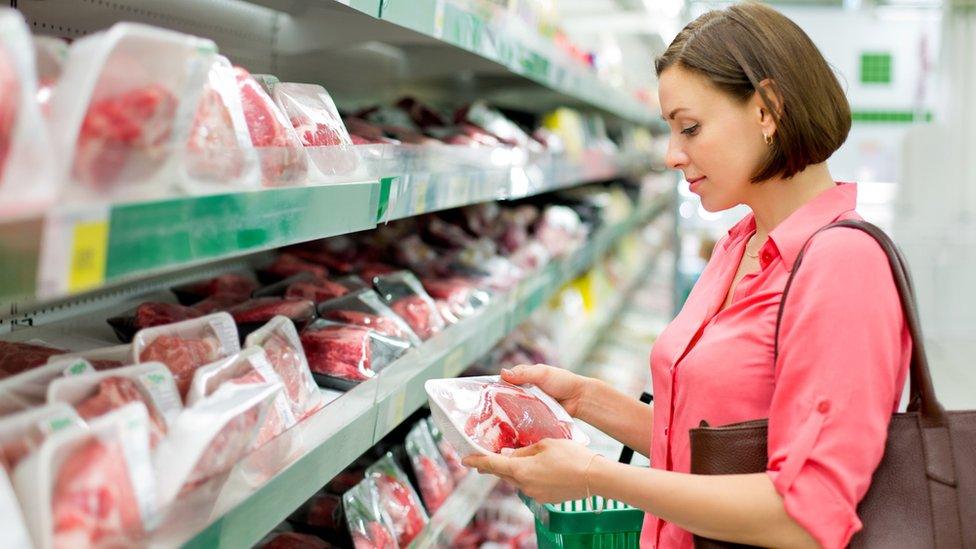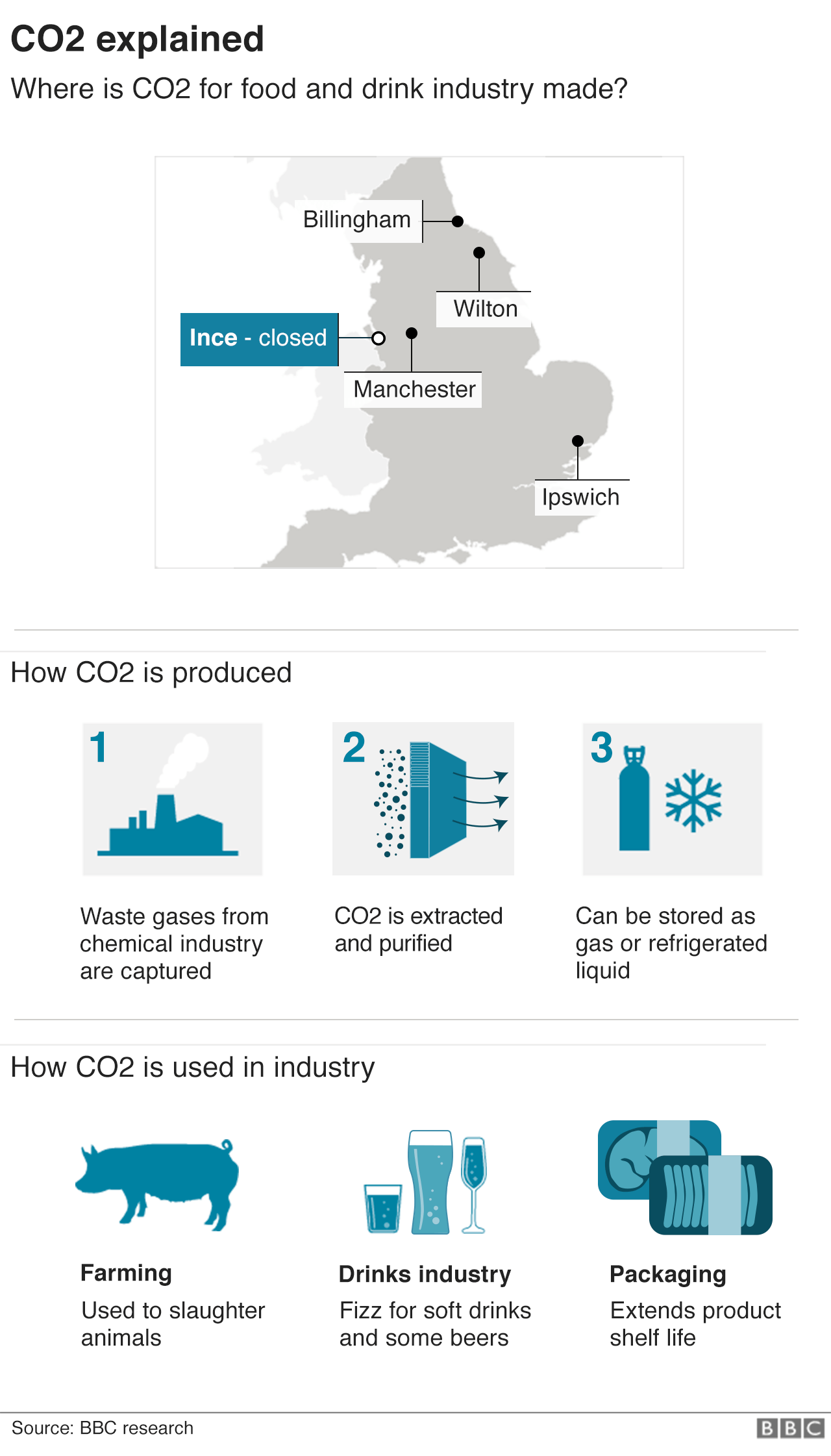CO2 industry strikes deal to prevent shortages
- Published

A fresh deal has been struck to keep supplies of vital industrial-grade carbon dioxide (CO2) flowing by keeping a key production site open.
When CF Industries' plant at Billingham shut briefly last year, it caused a crisis, threatening CO2 supplies to the food, medical and nuclear sectors.
At the time, the company said that high natural gas prices made the plant unviable.
A three-month deal allowing it to continue operating expired on Monday.
But the government said major CO2 users have now reached a new agreement with CF Industries.
Details of the deal have not been disclosed, but the BBC understands it will last until at least spring and come at no cost to the taxpayer.
"The carbon dioxide industry has come to an agreement to ensure UK businesses have access to a sustainable supply of CO2 - an essential component of the national economy," the business department said in a statement, external.
"The deal will enable CF Fertilisers' Billingham plant to continue to operate while global gas prices remain high. It means key sectors, including food processing and nuclear power, are ensured supplies of CO2."
In September, the government provided financial support to reopen Billingham. A deal was then struck between CF Industries and its customers to keep the plant open for three months without further subsidies.
The Food and Drink Federation (FDF) had warned that without an extension of that deal, CO2 supplies could be interrupted, leading to food shortages on shelves.
"UK food and drink manufacturers welcome the deal that will ensure continuity of CO2 supply, keeping our shops, pubs and restaurants stocked with our favourite food and drink," said Kate Halliwell, Chief Scientific Officer at the FDF.
CO2 is used in fizzy drinks, to keep packaged food fresh and to stun livestock before slaughter.
The UK continues to face soaring wholesale gas prices which have driven up costs for businesses and households.
The price of ammonia - which CF Industries uses to generate CO2 as a by-product - is currently at a record high, nearly double the level seen in September.

Analysis
By Ben King, business reporter
The deal guarantees supply for the next few months, but it doesn't resolve fundamental issues with the UK's supply of carbon dioxide.
Industrial-grade CO2 is made as a by-product of other industrial processes, such as the production of ammonia for fertiliser production, or bioethanol for fuel.
The UK relies on CF Industries for 60% of its CO2 needs, and most of that comes from the Billingham plant on Teesside. When that goes down, it is difficult to replace.
The UK faced a CO2 supply crisis in 2018, and another last year.
Industrial-grade CO2 is difficult to store, and expensive to transport. And while many industrial processes produce CO2, few generate a stream pure and reliable enough to use in food.
The government said it would like to see "the market take measures to improve resilience", and the Food and Drink Federation said it would boost its "efforts to build resilience".
Unless those efforts succeed, the UK may well face another CO2 supply crisis.


Related topics
- Published31 January 2022
